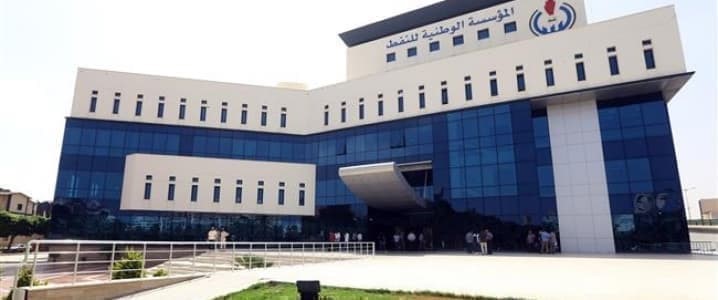Report
NOC Hold Open Meeting in London
DTG
20 Nov 2019
Recommendations

What Happened
Overview
On 20th November 2019, Libya’s National Oil Corporation (NOC) held an open meeting at the London Park Lane Hilton hotel to discuss current oil trading conditions in Libya. The meeting was marketed as an opportunity for the NOC to ‘clarify and reassure’ stakeholders of the ‘actual security assessment of all Libyan Ports and the Libyan market’. The meeting, which was led by NOC Manager of Marine Transport, Mustafa El Buaishi, and Musab Arebi, of the NOC Crude Oil and Marketing Dept, stated that Libyan exports currently stand at 1.15 million bpd, from a current production level of 1.3 million bpd. Curiously, the oft repeated claim by the head of the NOC, Mustafah Sanallah, that the NOC could reach a production level of 2 million bpd was not mentioned; this perhaps represents a low-level climbdown by the NOC, as it adopts a more realistic projection of future output levels.
NOC representatives also discussed the current security situation within Libya, asserting that the core area of conflict continues to be within South Tripoli, which has been the focus of fighting between Government of National Accord (GNA) and Libyan National Army (LNA) forces. A key takeaway from the meeting, which the NOC were keen to stress, was that despite the ongoing fighting surrounding Tripoli, Libya as a whole remains stable, and in particular Libyan ports remain secure (including Tripoli’s port). While Dryad broadly agrees with these assessments, we would remind commercial operators that any such assessment of risk must be weighed alongside an evidence-based appraisal of risk variables present in any location. To illustrate, while the threat level in Tripoli is High, and there is undoubtedly a high volume of kinetic activity, it is presently unlikely that vessels or personnel in the port area will be impacted by the ongoing conflict. The NOC is currently asserting that “all Libyan ports are currently safe”, and it aims for all Libyan ports to be ISPS compliant by February 2020. Despite the relative stability of trading conditions, the feasibility of this later statement remains questionable. This assessment is made on the basis of the multiple and competing issues currency facing NOC, which include attempts to increase output levels, ongoing security issues and potentially disruptive industrial action.
Our Experts Say
Dryad Assessment
During the briefing it was unsurprising to hear an optimistic and overwhelmingly positive message from the NOC representatives. This was, after all, an exercise in reassurance designed to capitalise on a positive market trend in Intra-Med trading conditions. Libya continues to undergo a period of transition, without any certainty as to whom the ultimate governing authority in the long term may be. It would, however, be inaccurate to confuse the lack of clarity around Libya’s future strategic and political authority with its ability to fulfil its obligations as a safe trading nation for international shipping. The takeaway message from the NOC was that Libya was “open for business”.
The intent of this message likely suggests that the NOC feels on the backfoot in terms of shifting business optics surrounding Libya and ensuring that potential investors and/or vessels feel that trading conditions are no longer such that Libya is a place where special measures are required. Indeed, the absence of traditional maritime crime inversely makes trading at Libyan ports a lower risk to vessels and crews than might be first assumed. Dryad advises that greater weighting should be given to acquiring an understanding of the specific nature of the risk when conducting due diligence within Libya, rather than the application of traditional mitigation measures, which are so often relied upon for safe trading.
Looking to the future, Dryad assess that it is likely that the NOC’s main international effort in 2020 will be in advancing a narrative of stable trading conditions, of which reassurances around security at Libyan Ports is at the core, and that Libya is firmly open for business.


